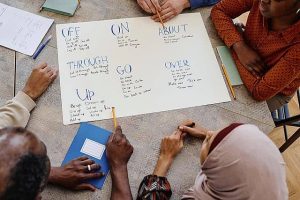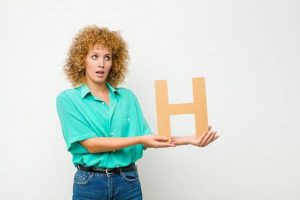Découvrez 2 scientifiques célèbres, 3 pratiques médicales étranges du passé et pratiquez le vocabulaire médical.
Le tout dans le même podcast !
Welcome to the Vivaling English Podcast “Great Medical Discoveries.”
At this point in time, the whole world is learning to respect and appreciate the hard work and sacrifices of our doctors, nurses and other carers, as well as the scientists behind them.
Today I am going to talk about two famous scientists who made important contributions to medicine, one from France and the other from the UK.
You will also learn some words about medicine, so pay attention. I will check whether you heard them correctly at the end of this podcast.
Before we go into detail, many medical practises in the past would be considered crazy if people did them today.
Listen to these 3 so-called cures or treatments and think about when and where people used to do them.
- Smoking
It was believed that a good way to improve your breathing and prevent problems in your lungs was to smoke cigarettes. It was even believed to improve bad or smelly breath. - Dead mouse and spider toothpaste
The idea here was to improve the health of your teeth by taking dead mice and spiders, mixing them up into a paste and spreading them all over your teeth. Nice. - Sitting inside a dead whale
Yes, a whale, the largest animal in the world. It lives in the sea. Rheumatism is a nasty disease which causes aches and pains in the joints. People believed that sitting inside a dead whale for 8 hours would prevent rheumatism for 12 months.
But when and where did people do these crazy things: in France, in the USA, India?
And when: last year, 100 years ago or 1,000 years ago? I will give you the answers at the end of this podcast.
We are now going to look at 2 famous scientists and their important contributions to medicine, one from France and the other from Great Britain. Maybe you already know their names, Louis Pasteur and Alexander Fleming. Listen to these descriptions of their careers and achievements and try to work out which is which.
Story number 1
This man was born into a poor family in a small town, but his discoveries changed the world forever. Before he was born, people believed that illnesses materialised out of nowhere, but he proved that, in fact, diseases came from germs, which were living things. One of his discoveries was that a disease could be prevented or cured by giving the patient a weaker form of the real disease. He called this a “vaccine.”
Vaccines today save millions of lives all over the world
He also created a system to treat wine, milk and vinegar that would kill the bacteria and allow you to keep it for longer. The name for this process is a clue to his name.
He was a family man and had 5 children. Unfortunately, 3 of his 5 children died when they were very young. It was this experience that motivated him to do so much research into diseases.
Story number 2
This man was also born into a poor family and could not afford to study medicine. It was only when he was into his late twenties that he had enough money to go to college. His story is a great example of how some of the most important things in the world can be discovered by accident. During his summer holidays he had left a culture of bacteria behind. In his absence, a fungus had started to grow and was killing the bacteria around it. He managed to isolate the culture and called it penicillin.
This became the basis for all antibiotic drugs used today
At first, nobody believed his discovery was any use. It was only 10 years later that drug companies started producing the antibiotic drugs that we use today. These drugs are also believed to save millions of people every year.
So, who were these 2 men? Do you know their names?
Yes, the first story was about Louis Pasteur, who was born in Dole in France, and the second was about Alexander Fleming, who was born in Darvel in Scotland.
The process for making milk and wine safe to drink is called pasteurisation.
I hope you noticed these words which are all related to science and medicine.
lungs
aches and pains
disease / illness
antibiotic
fungus
research
cured
vaccine
joints
Here is a definition. Listen to the definition and try to say the word before I do.
An organic growth of small particles often found on old food. Mushrooms are an example of this – fungus.
A type of medicine which destroys bacteria – anti-biotic
The organs on your body which you use to breathe – lungs.
The process of studying a subject in detail – research.
The parts of your body which connect one bone to another, for example, your knees and elbows – joints.
A feeling of discomfort in your body – aches and pains.
A type of medicine which prevents you from catching a serious disease – vaccine.
When your body is attacked by a disorder which causes various symptoms – an illness or disease.
When you are no longer showing signs of having the disease – cured.
If you got everything right, congratulations! If not, even better as it shows that you have learned some new words! Make sure you continue to increase your vocabulary.
You’ve done very well today, but before we finish, we need to go back to the question from the beginning of this podcast. Remember, where and when were these strange medical practices considered normal?
Smoking
Up until the 1920s, smoking was encouraged by doctors as a good way to improve your breathing and prevent problems in your lungs. In the United States, Europe, in fact all over the world, doctors encouraged people with breathing difficulties to smoke more cigarettes. Oh, dear!
Dead mouse and spider toothpaste doesn’t sound very nice.
Fortunately, it is over 2,000 years ago since this was common practice … in Ancient Egypt, but maybe it wasn’t so crazy. It has since been discovered that spiders’ webs contain amazing natural properties and can cure and heal cuts and wounds. Nice to know next time you are injured in the woods.
Sitting inside a dead whale is a strange thing to do, but in Australia until 1896, it was completely normal. Apparently it started when a drunk man accidentally fell into a whale’s carcass and fell asleep The next day he was cured of his aches and pains, and so other people started doing the same thing, similar to Alexander Fleming’s “accidental” discovery. Unfortunately, the name of the drunk man in Australia is not known.
And my advice to you is that next time you see a dead whale, don’t sit inside it for 8 hours.
Thanks for listening. Goodbye.





